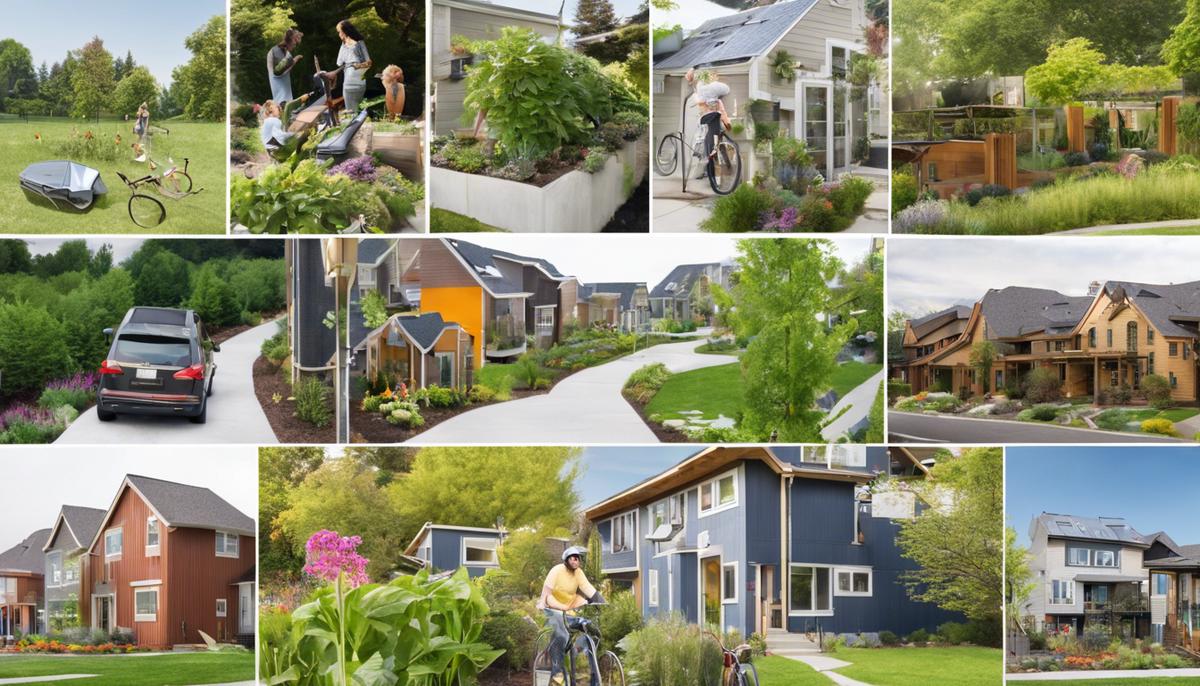Defining Sustainable Lifestyles
Defining Sustainable Lifestyles involves understanding how our daily actions, purchases, and transportation choices impact the planet. Our day-to-day decisions affect ecosystems, economies, and communities worldwide. The UN Environment Programme emphasizes sustainable lifestyles as a necessity, integrated into the Sustainable Development Goals, particularly in Education and Responsible Consumption. Sustainability is a fundamental way of living, guiding us towards a future where people and the planet thrive together.
Sustainability translates into everyday decisions that reduce environmental degradation while promoting social equity and quality of life. This encompasses what we eat, how we travel, the energy we consume and produce, and even the clothes we wear. Living sustainably requires a shift in perspective – from seeing individual acts as isolated to viewing our lifestyles as interconnected systems that either deplete or enrich our world.
Striving for a sustainable lifestyle is not about sacrifice or reducing life's quality. It's about intelligent choices that lead to a healthier planet and happier lives. It's about choosing to bike or walk instead of driving, opting for plant-based meals more often, reducing waste by choosing reusable products, and supporting businesses that prioritize the environment.
We need to ask: How can businesses and governments support communities to make easily accessible, affordable, and sustainable lifestyle choices? The emphasis turns towards crafting policies that empower people to live in harmony with the environment. While individual efforts are commendable, systemic changes are what truly move the needle towards sustainability.
Sustainable lifestyles challenge the narrative of relentless growth by showing that satisfaction comes not from possessions but the richness of experiences. They champion activities and investments that nurture well-being, community connections, and respect for all forms of life. Whether it's enjoying a locally sourced meal, investing time in community-building activities, or transforming a patch of land into a flourishing garden, these lifestyles portray how fulfillment directly ties to sustainable practices.
By integrating principles of sustainability into everyday living, we begin to remodel our societies into ones that value ecological balance, social justice, and economic inclusivity. This stands as a testimony to the conviction that another world is within reach if we decide to build it together. Sustainable living is a commitment to a life where we tread lightly on the earth while lifting up those around us.

Impact of Lifestyles on Climate and Biodiversity
The gravity of our daily decisions extends into the vast, interconnected web of climate and biodiversity. The '1.5-Degree Lifestyles' report illuminates the profound impacts of our choices on climate change and biodiversity loss. These impacts manifest through various facets of our lives, from food consumption and mobility to housing and consumer goods—all contributing to a larger environmental footprint.
Food consumption is a significant contributor to greenhouse gas emissions, with the livestock sector alone accounting for 14.5% of human-induced emissions globally. A shift toward plant-based diets is a powerful leverage point for mitigating climate change and preserving biodiversity. By reducing meat and dairy consumption, we can decrease the demand for land clearing and conversion, a leading cause of habitat destruction and species extinction.
Mobility, or how we choose to get from point A to point B, also impacts our planet. The transportation sector is a major culprit of carbon emissions, contributing to nearly a quarter of global CO2 emissions, with personal vehicles accounting for a significant portion. By favoring public transit, cycling, walking, or adopting electric vehicles, we can significantly reduce our carbon footprint. Such shifts lessen our contribution to air pollution and minimize urban development that threatens natural habitats.
Housing highlights the importance of energy consumption and its implications for climate change. Residential energy use for heating, cooling, lighting, and appliances accounts for a significant share of energy-related CO2 emissions. Embracing energy-efficient technologies, renewable energy sources, and sustainable construction materials can dramatically reduce these emissions. Intelligent urban planning that supports dense, mixed-use developments can conserve land, protect ecosystems, and foster communities that thrive on sustainability principles.
Our consumer goods—from clothing to electronics—embody the concept of 'embedded emissions,' which reflect the energy and resources consumed in their manufacture, transport, and disposal. The fast fashion industry is resource-intensive, contributing to water pollution and waste. Electronic waste poses challenges for toxic substance management and resource recovery. Embracing principles like circular economy—where products are designed for longevity, reuse, and recyclability—can mitigate these impacts and help maintain ecological balance.
Our everyday choices are powerful determinants of our planet's future climate stability and biodiversity richness. By aligning our daily practices with sustainability principles, we forge a path toward a more harmonious coexistence with nature. It's a journey that underscores a redefinition of prosperity, grounded in the health of our planet and the well-being of generations to come. Through informed choices, propelled by empathy and responsibility, we catalyze change that reverberates across ecosystems and time, manifesting a world where life in all its diversity can flourish amidst climatic balance and resilience.
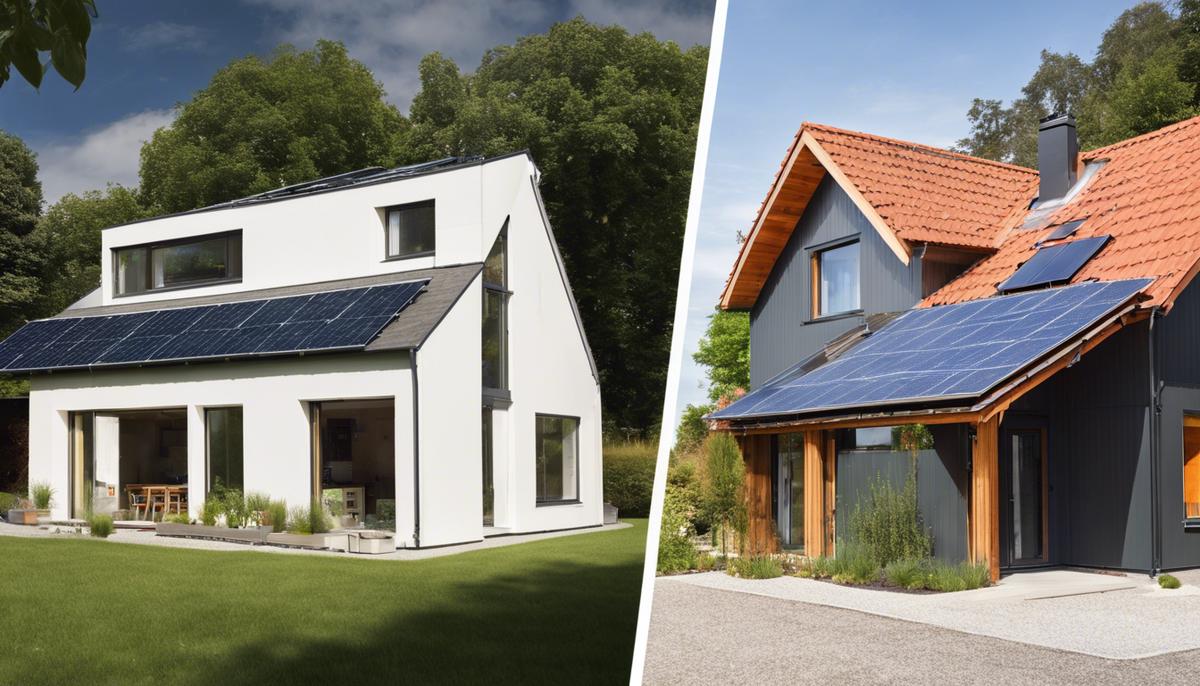
Barriers to Sustainable Living
Despite the growing consensus on the benefits and necessity of sustainable living, the journey toward adopting such a lifestyle is fraught with obstacles. The challenges people face can often be categorized under economic factors, a scarcity of information, the inaccessibility of sustainable options, and the pivotal role of governments and businesses which can either act as facilitators or barriers in this transition.
Economically, the upfront costs associated with sustainable living can be daunting for many. Investments in renewable energy solutions, such as solar panels, often require substantial initial capital, discouraging widespread adoption despite long-term savings and benefits. Eco-friendly products—from organic foods to sustainably manufactured goods—are frequently priced higher than their conventional counterparts, rendering them inaccessible to a significant section of society. This financial gap highlights the inequality in the ability to choose sustainability, implying that living green is a privilege rather than a universal possibility.
The scarcity of information exacerbates this problem. The complex and technical nature of the sustainability discourse alienates individuals who might be interested but find the topic impenetrable. Misleading greenwashing tactics by some companies further muddy the waters, making it challenging for the average consumer to discern genuinely sustainable products from those merely marketed as such. The lack of clear, accessible, and reliable information creates confusion and breeds skepticism, hampering progress toward broader sustainable living adoption.
Accessibility—or the lack thereof—is another significant impediment. For many, especially those living in urban environments, options like growing their own food or accessing bulk-buy stores for zero-waste shopping aren't practical. Public transportation systems may be inadequate or disincentivizing, pushing people back into reliance on individual cars. Communities often lack the infrastructure to support biking or walking as viable daily commuting methods. In regions where sustainability is still gaining ground, simply finding a market for organic or sustainable goods can be a challenge, forcing individuals to default to conventional choices by necessity.
Governments and businesses have a critical role to play in either lowering these barriers or inadvertently constructing them higher. In environments where policy aligns with sustainability goals—through incentives for renewable energy, penalties for high emissions, or subsidies for eco-friendly farming practices—individuals and companies are more apt to adapt. Conversely, without regulatory support and encouragement, or where short-term economic growth is prioritized over long-term environmental sustainability, the transition becomes steeper. Businesses must evolve beyond profit maximization models to prioritize sustainability genuinely. This involves rethinking supply chains, sourcing ethically and sustainably, and committing to transparency.
Identifying these hurdles is a step towards finding tangible solutions. Economically, innovative financing models could lower entry barriers to sustainable solutions, while governments could leverage tax incentives to make sustainable products more competitive. Education plays a pivotal role; ramping up efforts to demystify sustainability, utilizing every tool from school curricula to social media campaigns, can ignite grassroots level changes. The promotion of community-driven sustainability initiatives offers a path forward where resources may be scarce. Stringent regulations against greenwashing and robust support for sustainable business practices will streamline the consumer's choice towards truly eco-friendly alternatives.
Overcoming the barriers to sustainable living demands a multifaceted approach, involving cooperation between individuals, communities, businesses, and governments. It's about crafting an ecosystem that nurtures sustainability by default and recognizes our mutual dependency on striving for a harmonious existence with our planet. The challenges are significant but not insurmountable—especially when faced collectively—with empathy, ingenuity, and commitment to future generations and the health of our Earth.
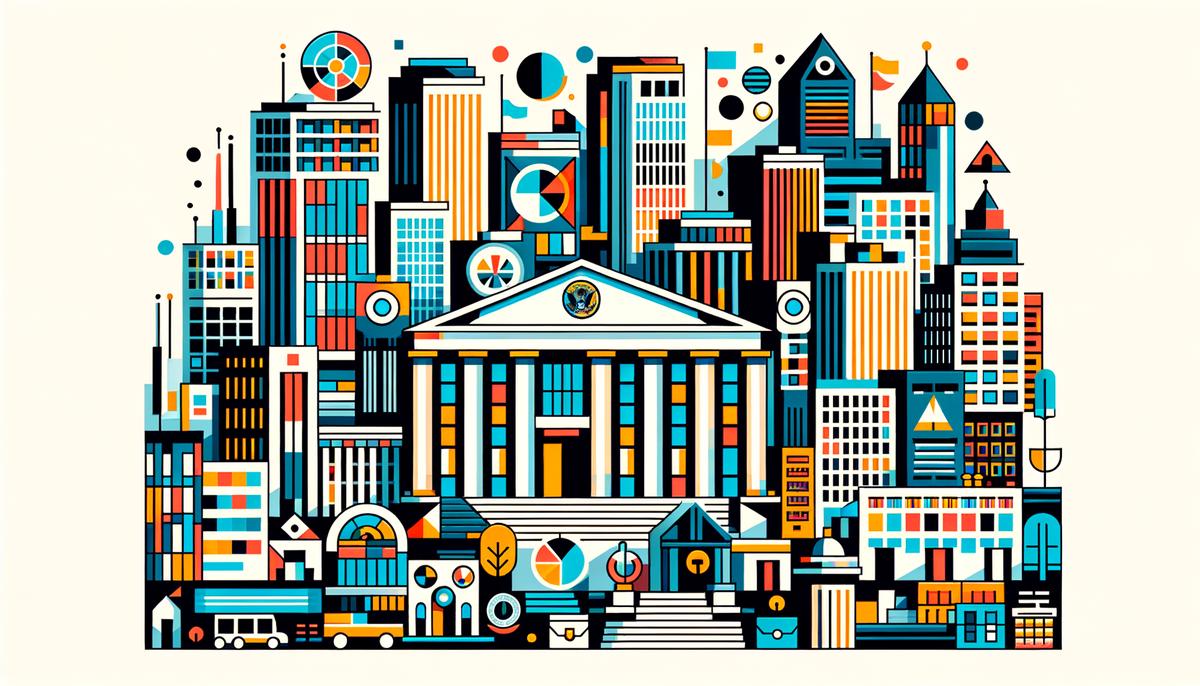
Role of Education and Awareness
Central to the expedition towards fostering sustainable lifestyle choices lies the meaningful role of education and awareness. Through the enlightening channels of both formal and informal education, minds are molded, perceptions shifted, and awareness heightened. By actively engaging with sustainability issues in educational settings, we underscore the importance of nurturing a populace that's not only aware of the multi-layered environmental challenges we face but also well-equipped to act upon them. The cultivation of environmental stewardship must begin in our classrooms and permeate into the broader fabric of society.
Comprehensive sustainability education fosters critical thinking, encouraging individuals to question the status quo and envision alternative paradigms where our actions align more harmoniously with the planet's well-being. Case studies of successful initiatives and campaigns across the globe underscore the potent impact of informed action. Programs integrating practical experiences, such as school gardens or recycling projects, bridge the gap between theoretical knowledge and its application. These hands-on experiences resonate deeply, fostering a connection between learners and their environment.
Public awareness campaigns play an indispensable role in highlighting the urgency of our ecological predicament. Effective campaigns not only spotlight pressing concerns but also illustrate tangible actions that can be adopted at an individual or community level. They inspire by showcasing the collective force of individual actions, galvanizing communities around shared goals of conservation and sustainable living. The pervasiveness of social media now amplifies these messages, enabling them to reach corners previously untouched by traditional educational mediums.
As we look to the future, reimagining educational strategies to support sustainable living becomes increasingly pertinent. Incorporation of sustainability into curricula needs to move beyond elective subjects into being a foundational core across disciplines. Enabling students to draw connections between their field of study and its environmental implications fosters a holistic understanding critical in any profession. Education systems must embrace interdisciplinarity, acknowledging that the solutions to our environmental crises are found at the confluence of science, economics, social policy, and beyond.
We must leverage the power of digital platforms to democratize access to sustainability education. Massive open online courses (MOOCs) on sustainable development, podcasts delving into environmental issues, and interactive webinars can transcend geographic barriers, creating global citizens armed with the knowledge to propel forward the cause of sustainability. Through these diverse channels, education becomes a beacon of hope, rallying a generation ready to take robust action against environmental degradation.
The path towards widespread adoption of sustainable lifestyles is complex, lined with challenges that may at times seem insurmountable. Yet, in education and awareness lies a powerful catalyst for change. It is through informed understanding that society can shift paradigms—adopting new norms, behaviors, and systems that prioritize the Earth's well-being alongside human prosperity. Embarking on this educational journey is an imperative for securing a sustainable future—a future where living in harmony with our planet is ingrained in the essence of who we are. Amidst this endeavor, may we find solace in the fact that every step taken in educating ourselves and others is a stride towards a more sustainable world.
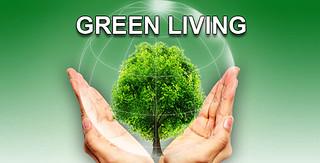
Future of Sustainable Lifestyles
The trajectory of sustainable living hinges on transformative trends, groundbreaking innovations, and progressive policy forethought. The 'Society and Lifestyles in 2050' report presents potential futures shaped by the interplay of technology, societal shifts, and policy evolution. This analysis explores the contours of a future where sustainable living becomes the bedrock of human existence.
Future sustainability trends revolve around the democratization and proliferation of green technologies. Renewables, such as solar and wind power, are poised to eclipse traditional fossil fuels in capacity and global accessibility. Advances in battery storage technology and decentralized power systems forecast a paradigm where clean energy is ubiquitous and integral to daily life. Emerging trends like vertical farming and cultured meat promise to revolutionize food production, reducing ecological footprints and promoting food security.
Shifting social norms are pivotal in sculpting the future landscape of sustainability. The 'sharing economy' is redefining ownership and consumption, with communities embracing shared resources and fostering a culture where sustainability and connectivity coalesce. Mindfulness and minimalism are nurturing lifestyles that prioritize experiences over possessions.
Policy developments are crucial for sustainable transformation. Progressive policies can accelerate the adoption of sustainable practices, as outlined in the 'Society and Lifestyles in 2050' report. Carbon pricing, regulations against pollution, and incentives for green innovation are potential policy interventions. Urban planning that prioritizes green spaces, eco-mobility, and sustainable infrastructure could redefine cityscapes.
Pivotal among policy imaginations are those that espouse a just and equitable transition to sustainability. Human-centric policies that foster inclusivity ensure that the march towards sustainability leaves no one behind. This principle of equitable transition is essential in building a future where sustainable lifestyles are universal.
The path towards sustainable living hinges on a synergy of technological innovation, social evolution, and bold policy frameworks. The 'Society and Lifestyles in 2050' report offers glimpses into a future where sustainability is etched into the fabric of society. While uncertainties abound, the direction is clear: towards a future where living sustainably is about blossoming in harmony with our planetary home. Our collective ambition, creativity, and resilience illuminate the path towards a more sustainable tomorrow.
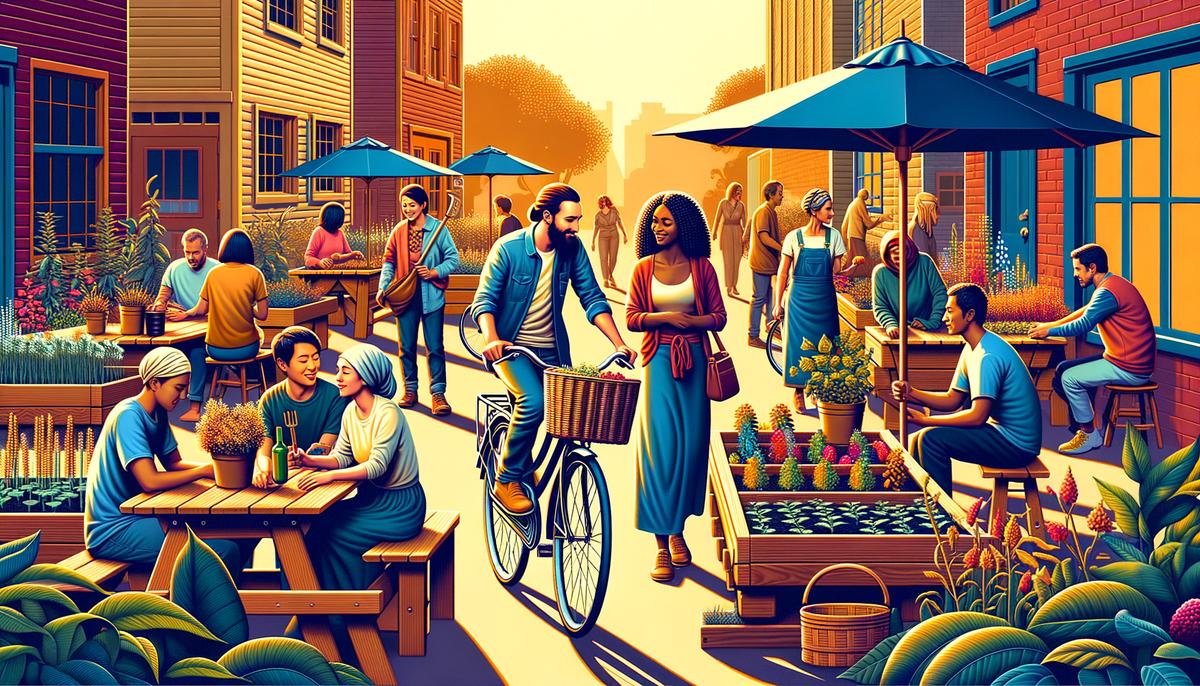
At the core of sustainable living lies the realization that our individual actions are interconnected with the global ecosystem. The most crucial takeaway is the empowerment that comes from understanding that each choice we make can contribute to a healthier planet and a more equitable society. By aligning our daily practices with principles of sustainability, we pave the way for a brighter future and redefine what it means to live a fulfilling life in harmony with our environment.

Writio: Your AI content writing solution. This article was written by Writio.
